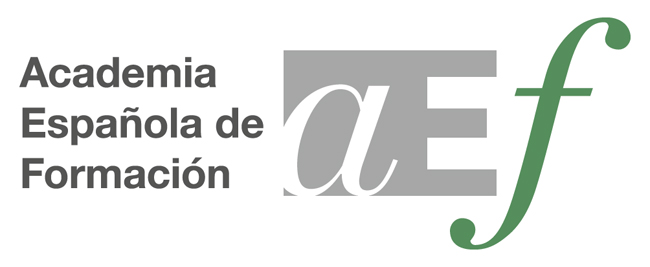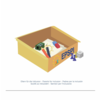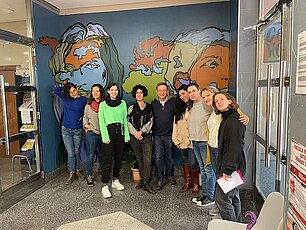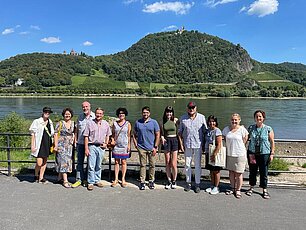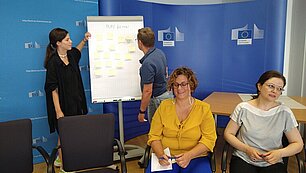Erasmus Project Parents for Inclusion
Welcome to the handbook for our project
EPSPI
"Parents for Inclusion - Padres por la Inclusión - Szülők az Inklúzióért - Genitori per l'Inclusione"!
We are pleased to welcome you as readers and invite you to a journey of inspiration and deep insights into the good practice of social integration work for and with people in difficult circumstances.
This "Parents for Inclusion" project is the result of the commitment and cooperation of five institutions from Germany, Hungary, Italy and Spain.
In all EU countries, as in the participating countries DE, ES, IT and HU, there is a systemic pattern of social disadvantage and discrimination between different social groups and the long-term educational success of children. Specifically, it concerns the children of migrants and Roma children in Hungary, who experience multiple disadvantages and easily lose out at school and later in professional life, rarely being able to realize their potential. However, social disadvantages are not fate, but opportunities and the future can be influenced. The "Parents for Inclusion" project is proof of this.
The five partner organizations from the four countries (Germany, Spain, Hungary and Italy) came together due to their experience, their scientific background, their expertise in supporting socially disadvantaged target groups and their complementary pedagogical approaches. Loosely based on Paulo Freire's pedagogy, the "Parents for Inclusion" project gives disadvantaged migrants and parents a voice to be heard.
The project was launched with the aim of developing a common transnational empowerment methodology for socio-educational work with socially disadvantaged parents.
The examples presented here range from the basics of self-organization of migrants to ensure success in school, the promotion of early childhood development and the avoidance of developmental deficits, the empowerment of mothers, the potential of cultural awareness and the issue of securing a livelihood by finding and taking up secure employment.
This handbook is therefore a comprehensive resource that not only provides information on current insights into the migration situation and social integration work, but also builds a bridge between different cultures. Our vision is to promote an inclusive and diverse community where everyone has the opportunity to feel comfortable and develop their full potential. In this sense, the handbook should be seen as an aid and inspiration.
It makes no claim to scientific completeness, but draws on the concrete experience of the employees involved. We would like this handbook to be a valuable resource for volunteers, social workers, educators, interested individuals and institutions, regardless of their experience in this field.
Each module of the participating institutions begins with an insight into the institution and the situation in their respective country. This is followed by an exchange of best practice and the testing of their own experiences in different countries and settings.
Through the tests, the participating organizations learned from and with each other and proved that their methods are universally applicable, as the work with Roma parents in Hungary shows.
In the appendix of this handbook, you will find a toolbox with various templates in different languages. These are available for you to implement or further develop ideas from the handbook.
We would like to express our sincere thanks to all those who have contributed to the development of this handbook, be it through their expertise, their time or their personal experiences. Without the generous support of the European Union, this project, which has benefited so many migrants, Roma families and staff, would not have been possible. It is a collaborative endeavor based on empathy, respect and the belief that inclusion is fundamental.
We turned an idea into a concept, a concept turned into a plan, and a plan turned into implementation, which took on a life of its own in different countries.
Yours sincerely,
Dr. Artur Kalnins and Miriam Germer
Project coordinators of the AEF Bonn
